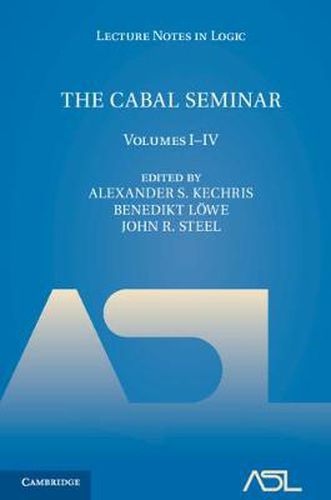Readings Newsletter
Become a Readings Member to make your shopping experience even easier.
Sign in or sign up for free!
You’re not far away from qualifying for FREE standard shipping within Australia
You’ve qualified for FREE standard shipping within Australia
The cart is loading…






The proceedings of the Los Angeles Caltech-UCLA ‘Cabal Seminar’ were originally published in the 1970s and 1980s. This series of four books collects the seminal papers from those proceedings, together with extensive unpublished material, new papers on related topics, and discussion of research developments since the publication of the original volumes. Volume I focuses on the subjects of ‘Games and Scales’ and ‘Suslin Cardinals, Partition Properties, and Homogeneity’, Volume II on ‘Wadge Degrees and Pointclasses’ and ‘Projective Ordinals’, Volume III on ‘HOD and its Local Versions’ and ‘Recursion Theory’, and Volume IV on ‘Extensions of AD, models with choice’, along with material important to the Cabal that does not fit neatly into one of its main themes. These four volumes will be a necessary part of every set theorist’s library.
$9.00 standard shipping within Australia
FREE standard shipping within Australia for orders over $100.00
Express & International shipping calculated at checkout
The proceedings of the Los Angeles Caltech-UCLA ‘Cabal Seminar’ were originally published in the 1970s and 1980s. This series of four books collects the seminal papers from those proceedings, together with extensive unpublished material, new papers on related topics, and discussion of research developments since the publication of the original volumes. Volume I focuses on the subjects of ‘Games and Scales’ and ‘Suslin Cardinals, Partition Properties, and Homogeneity’, Volume II on ‘Wadge Degrees and Pointclasses’ and ‘Projective Ordinals’, Volume III on ‘HOD and its Local Versions’ and ‘Recursion Theory’, and Volume IV on ‘Extensions of AD, models with choice’, along with material important to the Cabal that does not fit neatly into one of its main themes. These four volumes will be a necessary part of every set theorist’s library.